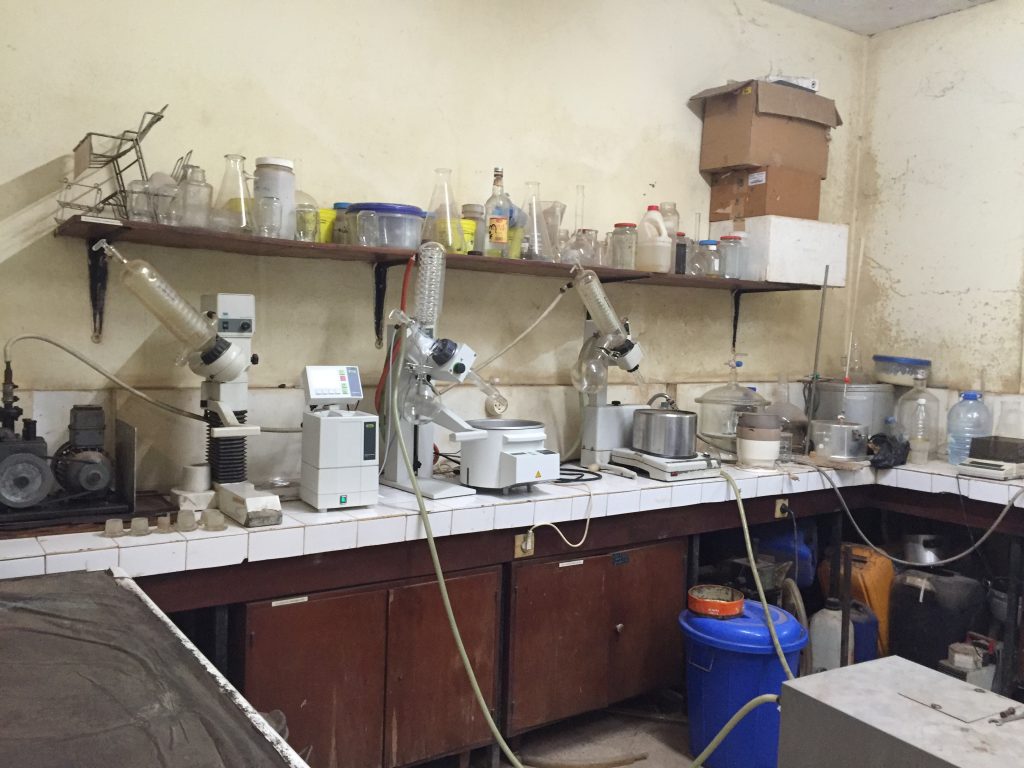H10. Autonom Laboratories
HR&S has representation in six countries in SSA (local coaches and auditors) and we are forceful when it comes to accountability.
HR&S is running webinars, coaching laboratories, coordinating stakeholders, and managing a network for technicians.
We also link up with “Agreed Suppliers”. We ONLY work with Agreed suppliers.
Background
Scientific Institutions
HR&S experiences suggest that the concept “Central laboratories” is key to a “laboratory sustainable economy” in a University setting, above pieces of equipment distributed over different departments.

Scientific Institutions
NoveleQ
NoveleQ is invited to a week-long 10 hour HR&S webinar on Laboratory Management (FAST) 2nd week of July 2021; three days with three-hour webinars (13,14,15 July, 8-11 am Nigeria time), and one day with one hour SfC presentations, 5 min presentation per institution (16 July, 8-9 am Nigeria time).
Registration: NoveleQ headquarters manages the registrations.
Communication: All webinar participants are members of the HR&S NoveleQ WhatsApp chat.
Fee: Each institution pays EUR 100, which covers the attendance of maximum five management and staff members. Payment information is available on the HR&S website.
Output: Each institution will develop a tailor made “HR&S Strategy for Change” during the webinar.
Launching the HR&S NOVELEQ collaboration 2021
Background statement by Cecilia: As most of us know, because of the disaster with PRISM, have I started a social enterprise, Human Rights & Science, through with I drive a shift a paradigm, from aid dependency to autonomy & equal partnership for global development. I have developed practical strategies, tools and resources to achieve this. I am proud of our Prof Karniyus for having standing strong and firm throughout everything, for never giving up also, for knowing that PRISM had potential. I will always appreciate and admire you for this, my dear friend Karniyus. I am offering, to those who are interested in joining, the practical strategies, tools and resources that I have developed though HR&S. But this time it is not an aid project, meaning there are not free resources. No donations, no free training, no free meetings, nothing is free of charge. Joining means investing a lot of our own free time and our own resources in the beginning until the institutions HR&S serves agrees to pay for the costs. Joining means being active.HR&S addresses scientific research, advanced laboratories, social enterprising and global development. HR&S fights aid, because despite the huge amounts of funds invested in aid since 60 years back, the number of extremely poor people in Africa is increasing every year. This fact alone is enough to know a shift of paradigm is necessary. I started HR&S with the intention to act on this piece of knowledge, in actual practice.
So, each and one of you are welcome to join this collaboration, but please only, if you do not expect anything for free.
Thank you for knowing me, and knowing that I always speak out and fight for what I believe is right and true. I am not an activist, I just work hard, firm and in harmony, but only with a team of people who agrees with my vision and mission. After this long talk, please reflect by yourself, do your want to join and be active expecting no donations, or not. We respect fully everyone’s decision. You may decide to leave the chat. God bless you for being honest. I and Karniyus are inviting, those who decide to join as a partner to the HR&S -NOVELEQ initiative, to a zoom meeting Thursday 12 August. The purpose with the meeting is to guide the team through the HR&S “Strategy for Change” and thereby; 1. decide on ambitions, activity plan and milestones, as well as, 2. discuss challenges and 3. agree on expected outcome and impact. for the partnership between HR&S and NOVELEQ.

Private & governmental laboratories
Senexel in Burkina Faso – Private
HR&S is running monthly online meetings with Senexel management and staff since January 2021. The meetings are supported by two HR&S Senior Expert Advisers, Sune ERIKSSON and Martin BRITS and are empowered by the practical strategy HR&S SfC.
The Senexel founder and CEO, Boubacar SENOU, attended the HR&S week-long 10 hour webinar on Laboratory Management in March 2021.
National Water & Sewage Laboratory in Uganda – Governmental
Attended HR&S Laboratory management webinar in March 2021 with 20 staff members and developed a written institutional SfC.

Agreed Suppliers
One of the concepts of the FAST approach is “Agreed Suppliers”. Through lessons learned has HR&S decided to make suppliers Target Partners.
www.Agilent.com
“Asset Management Programs. The foundation for successful modern laboratories is a comprehensive lab operations management plan. This enables building and effectively executing an operating philosophy, leading to consistently meeting your scientific and business goals. Finding the partner who best helps your organization develop and execute this plan —from current operations to future strategies —will enable you to achieve this success. Our asset management programs bring over 40 years of experience in day-to-day lab operations. We can guide you on the journey to advance lab performance and elevate scientific productivity. Using a proven set of methodologies, products, and services with a focus on continuous innovation, together we can simplify, optimize, and transform your lab.”
Jerome Gallin, Sales Director International Distributors Organization, Laboratory Solutions Sales EMEAI Agilent Technologies

Network of technicians
Another concepts of the FAST approach is “Network for tecnicians”. Through lessons learned has HR&S decided to ensure a meeting platform targeting laboratory technicians.

Background
Research & laboratory management in Nigeria
National Universities Commission (NUC) noted in 2007 that no Nigerian university had ever been included in the best 6000 universities in the world. Therefore, in accordance with the Federal Military Government’s 1974 Decree No. 1, the regulation that the Ministry of Education (MoE) and National Universities Commission (NUC) governed and regulated all public and private universities in the country to offer undergraduate and postgraduate programmes was established.
of their founders and government policies through the NUC to meet local student, community and industry demand, needs and expectations, to conform to the regulations of the Ministry of Education and still make a profit. Obasi et al. (2010) argued that there are doubts as to whether Nigerian universities were able to continue to lay claims on being central to national capacity, connecting to the new international knowledge system, or to adopt or further adapt developing new technologies needed in wider society. The authors claimed that that university governance in Nigeria was mainly about crises management, including; financial crisis, deteriorated infrastructure, brain-drain syndrome, erosion of university autonomy, graduate unemployment, volatile and militant student unionism, secret cults, political interference, and strikes, all of which have affected the quality of education. Obasi et. al. (2010) argued the majority of these problems were traced back to lack of proper management and policies not being implemented for the reasons they were originally formulated.

University management
University management in Nigeria, as defined Adetunji, A., (2015), encompasses university employees who are responsible for decisions making in Nigerian universities, and are sometimes called management, principal officers or stakeholders. The Vice Chancellor is the chief executive officer of the university. For purely academic matters, all Nigerian universities have a body called the Senate, which is comprised of the professors of the institution and the provosts, deans, institute directors, and heads of academic departments. The vice-chancellor presides over the senate, and the Senate control admission, teaching, graduation and discipline of students, and determine priority areas for research. Many of the Senates decisions are based on the recommendations from the various faculties and committees. In other words, committees are an integral part of Nigerian university. The Nigerian University Council is the governing authority of each university and has the custody, control and disposition of all property and finances of the university. Ojelabi, (2004) pointed out that university management can viewed from two dimensions, internal and external. The external dimension is controlled by regulatory bodies, such as the Federal Ministry of Education (FME) and the National Universities Commission (NUC), a body charged with the coordination of university management and compliance with government policy in the country. The National Universities Commission govern all the universities following a mandate, which is on Quality Assurance in universities, under the direct supervision of the Federal Government.
Strategic partners in Nigeria
- National Universities Commission (NUC)
- Federal Ministry of Education (FME)
- Tertiary Education Trust Fund (TETFund)
Association of Vice-Chancellors of Nigerian Universities (AVCNU)
Reference
Adetunji, A. (2015) Understanding the Nigerian universities management system. Researchjournali’s Journal of Education. 3.
ISSN 2347-8225. https://www.researchgate.net/publication/302026580_Understanding_the_Nigerian_universities_management_system (10 March 2021)
Ajadi, T. O. (2010) Private universities in Nigeria – The challenges ahead. American journal of scientific research. 7, pp 15–24.
Partnership
Expert advice & training
The partnerhip benefits from the support of HR&S Senior Expert Advisers and HR&S annual Laboratory Management Webinars.
Strategy for change
We develop and implemented a strategy for change for the partnership.
Social good
The population of countries in Sub-Saharan Africa benefits from if the country has trustworthy and sustainable laboratories.
Sustainable economy
Making the laboratories large, is key to a sustainable economy.
